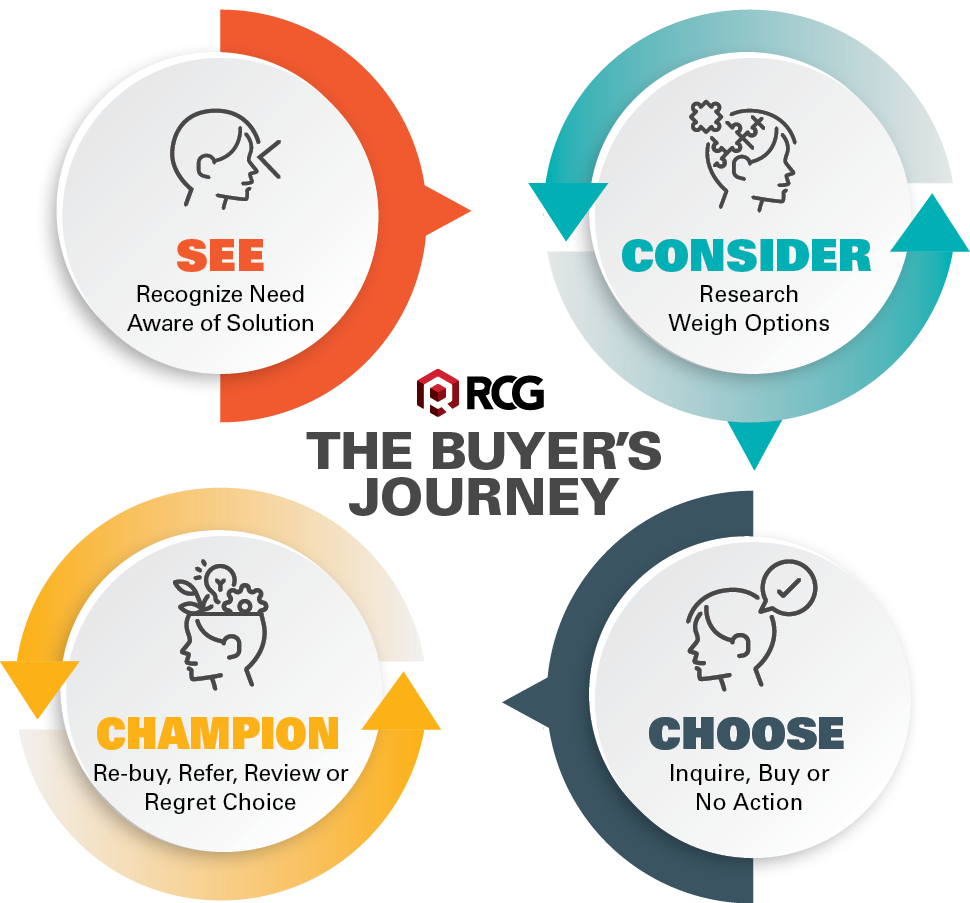
How Home Service Groups Can Navigate Customers Researching Your Business
Customers are continually spending more time researching your business. It may also seem that customers are taking longer to make the decision to get a quote or estimate. There have been dramatic shifts in how customers potentially find you. The Yellow Pages directory was the go-to source for all companies less than 25 years ago. Now, internet search engines like Google have taken its place.
In turn, customers may be doing several things before making that first call to your company. They may be reading reviews, finding you through information on your website or doing research on their home problem first. They may be asking their neighbors for advice. The purchase funnel has always had “consideration” after awareness, but that has shifted as well. With so much information available at a customers’ fingertips, it’s easy to see why they want to know as much as possible before making a large investment in home repair or home improvement.
In fact, the customer journey may stall during the research segment of the purchase funnel. With more choices and more information available to your prospects, it’s important to consider all the ways you can help customers choose your business. Here are a few of the big ones:
Websites for Both Presence and Consideration
It’s vitally important to have a web presence. This includes a full website and not just social media accounts. Before they spend money with you, many customers will want to know as much as they can about who you are and what you do. If your competitors are providing more information or information that’s more “user-friendly,” they may already appear more credible, and you could be starting the race from behind.
Few things are more frustrating to a customer as when they are researching a home repair and find little to no content describing their specific issue. From this standpoint, the more content you can develop that describes and addresses what people are seeing or experiencing in their own homes, the better off you’ll be. Plus, done correctly, this content will be naturally rich with keywords that homeowners are using in their search engines. Strong keywords used in relevant, informative content will enhance your standing in organic search (SEO) and give you a leg up on your paid search results (SEM), too.
Reviews Matter
Fear of disappointment can derail inquiries and sales. One of the best ways to combat customer hesitation is by giving them plenty of examples of good outcomes from your work. Positive online reviews are a great way to reassure customers about the quality of your work. They also provide a psychological benefit by giving prospects the impression that, by hiring you, they’ll be joining a large group of homeowners who’ve made smart decisions.
There’s no question that reviews can cut both ways, though. Unhappy customers can be motivated to leave negative reviews while the happy customers may simply enjoy the results of your work in silence. This is why it’s so important to actively communicate with satisfied customers, thank them for their business and request reviews and feedback.
Also, consider sharing reviews across different platforms – not just through Google or on your main site. Some sites like Home Advisor can track and publish reviews from multiple sources for a fee. These types of pay-for-play sites may also offer the ability to solicit reviews from booked leads as well, which may also provide benefits and insights.
Home Services Dedicated Sites
Angi’s and Home Advisor have become two of the top industry-specific search engines for Home Services. In recent years, newer groups like Thumbtack, Porch, Houzz and Networx have all jumped into the game. Do you need to be listed, and pay for, all of these? Like many marketing questions, the answer to this one is “it depends.”
Consider your service offering and how it will be categorized and served to prospects on each platform. Being listed in a broad category that doesn’t fit you well can generate the wrong kinds of leads. A narrow category might generate highly qualified leads, but few of them. No matter how you’re listed, be sure it’s accurate. Customers can get easily frustrated if they feel they’ve been sent in the wrong direction, and they may blame you as much (or more) than they blame the search platform.
It’s also important to consider that many of the pay-for-play search sites have varying degrees of penetration and consumer awareness in different markets. Home Advisor may work best in one area, while Porch works better in another. Before making any investment, take some time to study the numbers for your category and your geography. Doing a limited time test of one platform against another and evaluating the lead quality and quantity may be a great option if your budget allows it.
Overall, remember you do not have to be everywhere all the time. Find the platform and timing that works best for you.
There are several other factors when customers research your business. If you’re looking to amp up your online presence and content, RCG Contractor Marketing can help you develop a plan. Contact us today with this link to start the journey of standing out against the competition.





